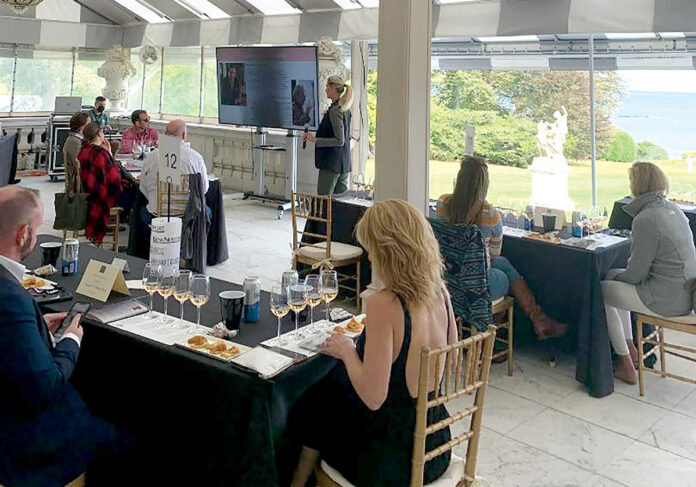Restaurants are complex places. There are legal and fire codes, health and safety requirements, municipal and state inspections, regulations and licensing, year in and year out. And once those are overcome, there is the next hill to climb – that of customer perception.
“We spend a lot of time making sure we are creating an environment to keep our guests safe,” said Dale Venturini, CEO and president of the Rhode Island Hospitality Association.
And, Venturini said, we diners who visit one of Rhode Island’s 3,000-plus restaurants never see most of it. All we see and expect when we dine out is for the magic to happen. Once upon a time, the last thing we wanted to see when we went out to dinner was people dressed in hazmat suits conducting sanitization procedures in the dining room.
But the COVID-19 pandemic has changed things somewhat.
As Venturini puts it, “We have had to reverse that! Now [our guests] want to see and know everything we are doing. We had to open the curtain a little to show what we have always done.”
It is instructive to note that the restaurant’s function is to keep us safe during the time we spend there. Any restaurant observer who focuses on the food-service beat will acknowledge the trust built by owners, chefs, managers and staff over time. And they have lived up to the trust, evidenced by the absence, by and large, of any outbreak at the state’s eateries over the years – including during the pandemic.
Venturini acknowledged that a new hurdle that must be overcome is adapting to the changing New England weather. During the summer, outdoor dining has been a big bright spot as restaurants have set up sidewalk tables or sectioned off parts of parking lots and turned them into makeshift dining areas, and communities have closed roads to create extra seating space.
Indoor dining rooms have been open, but the outdoor options have kept them less crowded, allowing for social distancing. Now what happens as the temperatures start to drop as we head into fall?
When it was pointed out to her that restaurants in other states are offering guests extras such as blankets, outdoor heating and even individual plexiglass pods sheltering each table, Venturini hinted that some innovative ideas may be on the way. Unsurprisingly, she is a proponent of keeping the streamlined regulations for “cocktails-to-go” and adapting new spaces for dining. She cautioned that federal funding will be needed to keep restaurant and lodging businesses afloat and said they might take the form of grants. She expressed optimism that Congress will come through in some fashion.
Venturini agreed that we, the guests, insist our restaurants must remain open. “When I go into a restaurant these days, I miss the cacophony of noise, the glasses tinkling, people conversing, sitting across from someone and chatting or exchanging ideas,” she said. “It is the sound of life. And when we first closed down, the silence was deafening.” The challenge from her perspective will be how both host and guest can adapt to what she refers to as “the new – I don’t say the new ‘normal’ because it won’t be normal!”
We guests want to be supportive. In Newport, a group of restaurants and at least one winery hosted a weekend of socially distanced gatherings under the umbrella of the Newport Mansions Wine and Food Festival, observing all safety guidance and allowing only a limited attendance. Every single event sold out. The restaurants took in a much-needed serving of revenue and the attendees found another bright spot in this interminable year of gloom. It is too soon to tell, but to have multiple events turn out with positive outcomes – and no positive cases of virus – could be shown as a shining example that life may be able to go on, even with masks and safety measures. It is certainly something we can all raise a glass to.
Bruce Newbury’s radio show and podcast, “Dining Out with Bruce Newbury,” now in its 25th year, is broadcast on WADK 1540 AM and several radio stations throughout New England. Email him at Bruce@BruceNewbury.co












